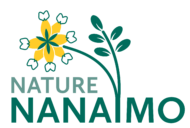Coastal temperate rainforests are globally rare and geographically isolated ecosystems. They exist in only a few places on Earth and are mostly threatened by industrial and climate pressures. British Columbia contains the largest area of coastal temperate rainforests in the world and is a biodiversity hotspot for soil organisms like oribatid mites (Acari: Oribatida). Factors that contribute to this high biodiversity include large accumulations of organic matter that extend into the canopy of ancient forests. Historic and current social and geologic events such as the ‘war-in-the-woods’ over forest harvesting and earthquake-induced tsunamis across the Pacific Ocean might seem unrelated, but both have long-lasting impacts that shape the composition of oribatid mite communities in the coastal temperate rainforest.
Dr. Zoë Lindo is a Professor at Western University, Department of Biology. Growing up on Vancouver Island was formative for Zoë’s connection to coastal temperate rainforests. While completing a BSc, Zoë was introduced to soil ecology and soil biodiversity which led to a MSc at the University of Calgary examining forest harvesting effects on oribatid mites (Acari: Oribatida) in mixed- wood boreal forests. Eager to return to the forests of home, Zoë completed a PhD at the University of Victoria in 2008 examining oribatid mite communities in canopy habitats of coastal temperate rainforests on Vancouver Island. After a postdoctoral position at McGill University, Zoë started as Assistant Professor at Western in 2011. While the majority of their current research examines how peatland soil biodiversity is affected by climate warming, Zoë’s 2017 sabbatical was spent looking for rare oribatid mite species on southern Vancouver Island and in beach debris on Haida Gwaii. While Zoë and her partner live in London, Ontario, they spend as much time as possible in the forest at their property on Denman Island.
